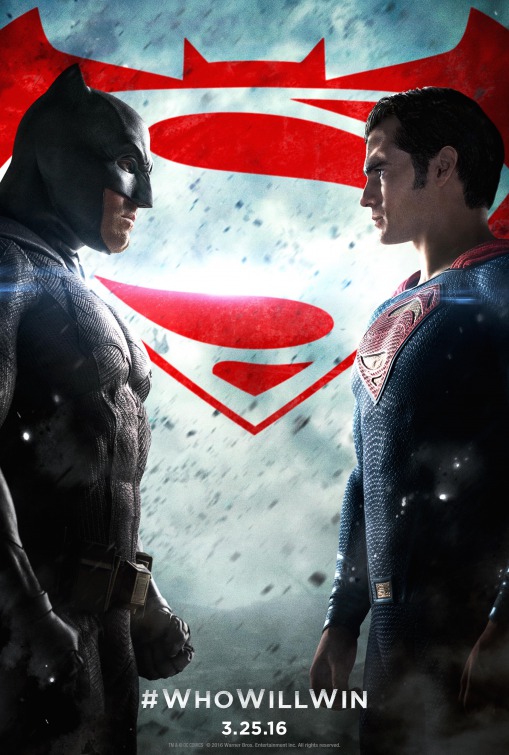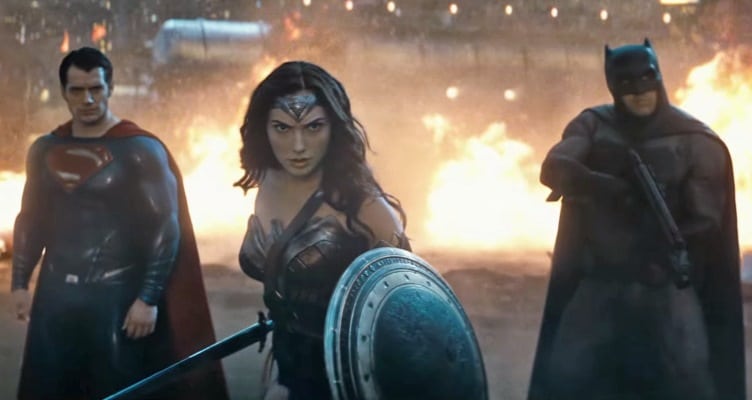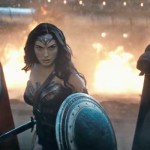Somewhere during the titular bout in Batman v Superman: Dawn of Justice, I hated myself for liking superhero movies. This feeling is almost certain to be temporary, dissipating when Captain America: Civil War rolls around in May. But there’s something singularly bleak about what will heretofore be abbreviated as BvS – something distinct from the post-9/11 political provocations of Christopher Nolan’s Batman films, or even the gratuitous metropolitan mayhem and murder for which BvS’s predecessor, Man of Steel, drew such flak. BvS is wracked with self-loathing in almost every way, and it’s contagious.

Batman (Ben Affleck), meanwhile, is a crotchety old bastard driven by self-flagellation over his failure to save a former Robin, as well as a number of his employees who were killed in Man of Steel’s final battle. Batman is traditionally a logical character – perhaps the most logical character, as superheroes go. But he seems ignorant of the handful of major heroic deeds we see Superman carrying out around the world, doggedly choosing the path of vendetta. There are only two possible outcomes to Batman’s childish campaign: kill Superman or be killed by Superman. This Batman is fine with either. He hates Superman enough to take the man’s life, but also seems to hate himself enough that dying in the process is just as good an outcome.
Cue the big, nasty, clangorous battle about two-thirds of the way through BvS – which, it should be noted, lasts a surprisingly short time before Batman realizes that Superman actually is an okay guy, for the dullest imaginable reason. Then it’s off to a second big, nasty, clangorous battle with some real evil, which is punctuated with supporting characters noting that the metropolitan areas being leveled are actually uninhabited. BvS is interested in addressing Man of Steel’s careless carnage, but only in the laziest way possible.
Chris Terrio, an Oscar winner for his screenplay for Argo, scripts this shambling, ugly narrative. It’s hard to say a man who wrote a screenplay as crackling and character-driven as Argo’s is out of his depth, but Terrio clearly has no idea what to do with this material. He wastes the first half of the movie navel-gazing about the psychological motivations of two of the most straightforward characters in the history of fiction, and throws up his hands completely when it’s time to actually stage some action. Director Zack Snyder, a frequent target of nerd rage, here earns the dubious distinction of making his least irritating directorial effort yet. Snyder has almost entirely eliminated the speed-ramping effect he so widely popularized in 300. He now stages some capable scenes, but far too many obscured in murky darkness and glaring lens flares.

Megalomania is certainly increasingly present at Marvel as well, of course; two-time Avengers director and Marvel architect Joss Whedon recently announced he was done with the studio, worn down from all the empire-building he was required to do on last year’s Avengers: Age of Ultron. The big difference between the two burgeoning “cinematic universes” is that Snyder’s not even close to tired. With two dull and dreary dollops of DC product under his belt, he’s already plowing forward into the two-part Justice League. As characters portentously discuss assembling the eventual League at the end of BvS, Wonder Woman asks Batman: why does he think the new team is going to have to fight? “Just a feeling,” Affleck replies. “Because this is 2016 and we have to come up with something to put asses in seats,” is seemingly implied. There’s a sense of obligation to a public who just loves them some superheroes, no matter what form they take. But when they’re rendered with the kind of vapid and vicious stupidity on display in Batman v Superman: Dawn of Justice, there’s precious little to love – and the circle of self-loathing eats its own tail.

| Producer: | Charles Roven and Deborah Snyder |
| Release Date: | March 25, 2016 |
| Starring: | Henry Cavill, Ben Affleck, Jesse Eisenberg, Gal Gadot, Amy Adams, Laurence Fishburne, Jeremy Irons, and Diane Lane |
| User Rating: | |
| Writer: | Chris Terrio and David S. Goyer |
| MPAA Rating: | PG-13 |
| Director: | Zack Snyder |
| Distributor: | Warner Bros. Pictures |
| External Info: | Official Site |
